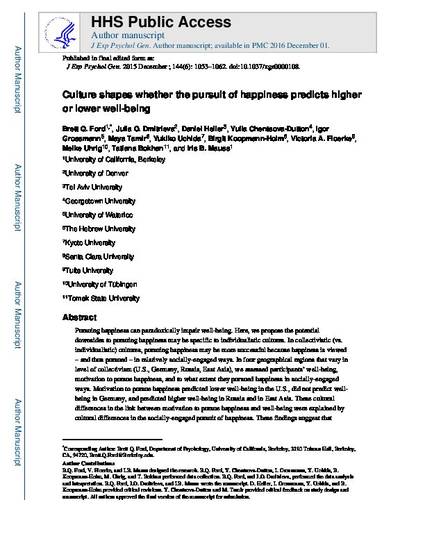
Pursuing happiness can paradoxically impair well-being. Here, the authors propose the potential downsides to pursuing happiness may be specific to individualistic cultures. In collectivistic (vs. individualistic) cultures, pursuing happiness may be more successful because happiness is viewed--and thus pursued--in relatively socially engaged ways. In 4 geographical regions that vary in level of collectivism (United States, Germany, Russia, East Asia), we assessed participants' well-being, motivation to pursue happiness, and to what extent they pursued happiness in socially engaged ways. Motivation to pursue happiness predicted lower well-being in the United States, did not predict well-being in Germany, and predicted higher well-being in Russia and in East Asia. These cultural differences in the link between motivation to pursue happiness and well-being were explained by cultural differences in the socially engaged pursuit of happiness. These findings suggest that culture shapes whether the pursuit of happiness is linked with better or worse well-being, perhaps via how people pursue happiness.

Copyright © 2015 American Psychological Association. This article may not exactly replicate the final version published in the APA journal. It is not the copy of record.
http://dx.doi.org/10.1037/xge0000108